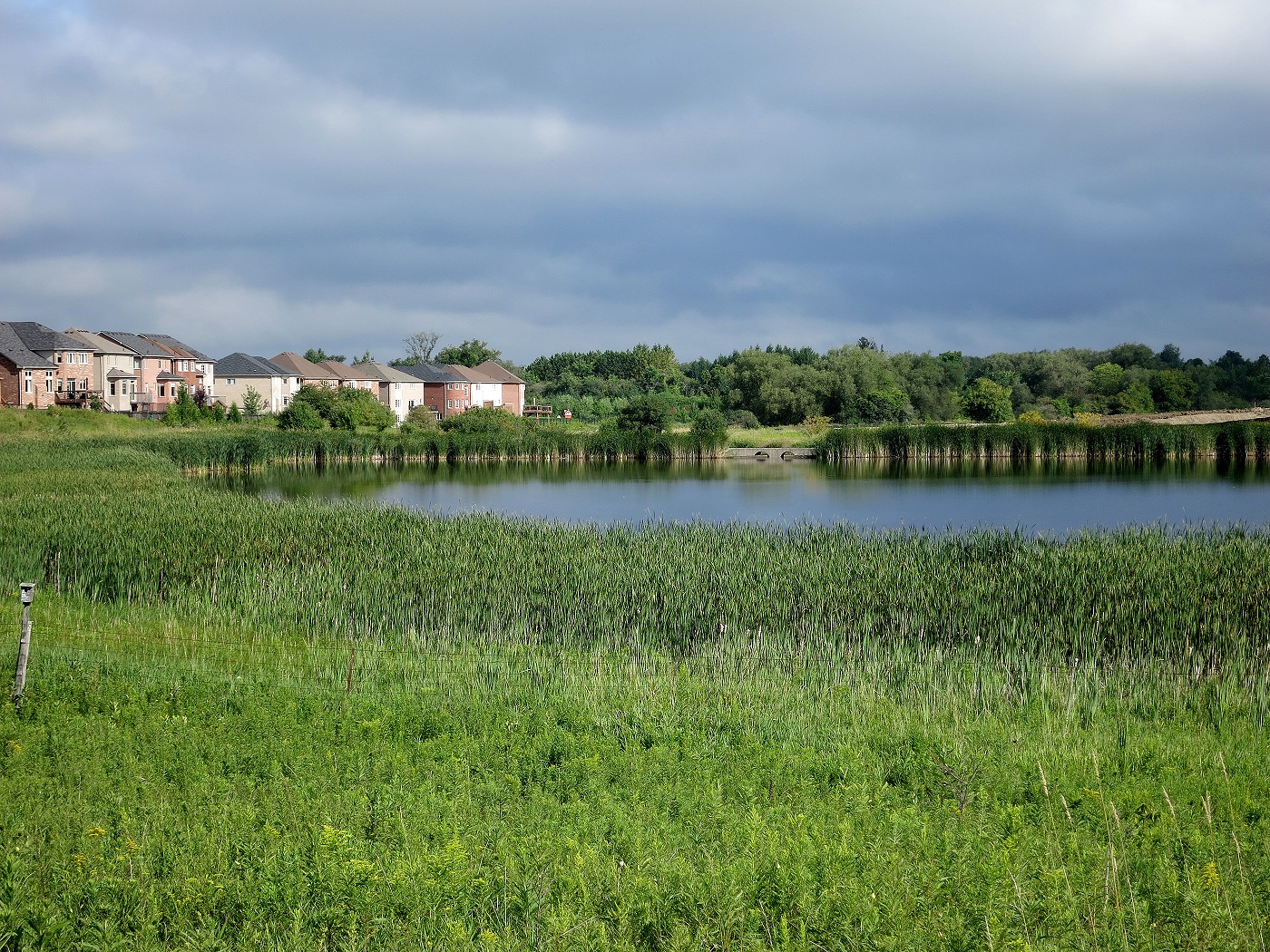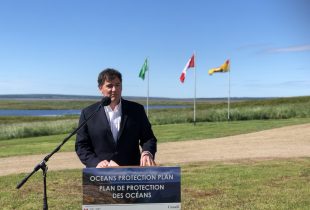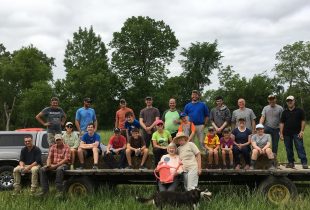A common voice
New coalition of somewhat unlikely partners is moving the dial forward on wetland conservation in Ontario

When he was 10 years old, Kevin Rich and his family moved from downtown Toronto to a small farm near Uxbridge. With a father in the radio business, Rich’s family had moved around a lot, but this move was different. Here, there were 25 acres of forest and pasture stretching over rolling hills and a cold-water stream where Rich once found a giant snapping turtle shell. Best of all, the neighbours didn’t mind if you rode your bike all over the hills. For a kid like Rich, it was heaven.
It’s an experience that continues to inspire Rich today. As head of industry and government relations for DUC in Ontario, Rich works to conserve Ontario’s wetland resources – a significant challenge in a province that is home to 40 per cent of the country’s population and where industry and agriculture are expanding. But, a new coalition of somewhat unlikely partners is having success and moving the dial forward on wetland conservation in Ontario.
“In 2014, the provincial government began to review Ontario’s wetland policies as a first step towards meeting the Premier’s commitment to reverse wetland loss by 2025,” says Rich. “We decided to reach out to this industry group to say, ‘Look guys, we know that we all have our own particular concerns around wetlands, but we also have a common interest in ensuring that wetland policies are clear, consistent, and practical.’ We felt there was value in coming together as a group, finding those areas of common ground, and then communicating that to government.”
Mike Collins-Williams, a registered professional planner and the director of policy with the Ontario Home Builders’ Association (OHBA), has been working in partnership with DUC for years on species at risk regulations and through DUC’s fee for service programs to restore wetlands and other habitats in areas undergoing development.
“DUC is an environmental and conservation organization,” says Collins-Williams, “But in terms of the planning process on the landscape, they have to pursue approvals and permits and they come up against some of the same challenges as our members, who are involved in different types of economic development.”
“We often find ourselves at the same meetings, facing the same challenges,” he continues. “We thought there might be an opportunity for DUC, OHBA, and a number of other stakeholders to get together and provide leadership and to come up with creative solutions that will protect natural heritage and specifically wetlands on the landscape, while still having a regulatory framework that allows certain, lower-risk economic development opportunities to occur.”
The group has grown and represents a diverse range of industry associations, including: the Ontario Home Builders’ Association (OHBA), Ontario Federation of Agriculture, Ontario Waterpower Association, Ontario Stone, Sand & Gravel Association, Canadian Wind Energy Association and Canadian Solar Industries Association, along with DUC.
The group has engaged in discussions since 2015. As a spin-off activity, in the fall of 2015, DUC and Ontario Nature hosted a joint workshop, sponsored by OHBA. “When you get different NGO’s and government and industry in the room, we are not always going to agree on everything,” says Collins-Williams, “but these are still important discussions to have and – when you really drill down on the issues – there are often commonalities where we find we can work together.”
Rich agrees. “This process has strengthened our group’s messaging and ensured that our recommendations to government are grounded in the real world, are practical from an industry perspective and raise the bar for wetlands.”
As the provincial government has moved through two rounds of consultations on Ontario’s wetland strategy, the group has made three joint submissions to express their common interest in advancing wetland conservation in Ontario and calling for a single, overarching wetland policy for the province.
Collins-Williams is hopeful that a common voice across a diverse group will lead to a path forward. “I think that when government sees groups working together that are not always expected, it opens their eyes and gets them thinking ‘Well, if these groups are working together and think that there are some good ideas and opportunities here, then maybe we should listen and work with them to develop public policy.’”
A new wetland policy for Ontario is a key step to preserving the province’s natural spaces and ensuring that we all can continue to experience nature just like Rich did years ago. “I’ll always remember that property. There was a big hill that we called a mountain. It had a grassy top where you could see for miles and miles and all you could hear was the wind. It was pretty cool.”



